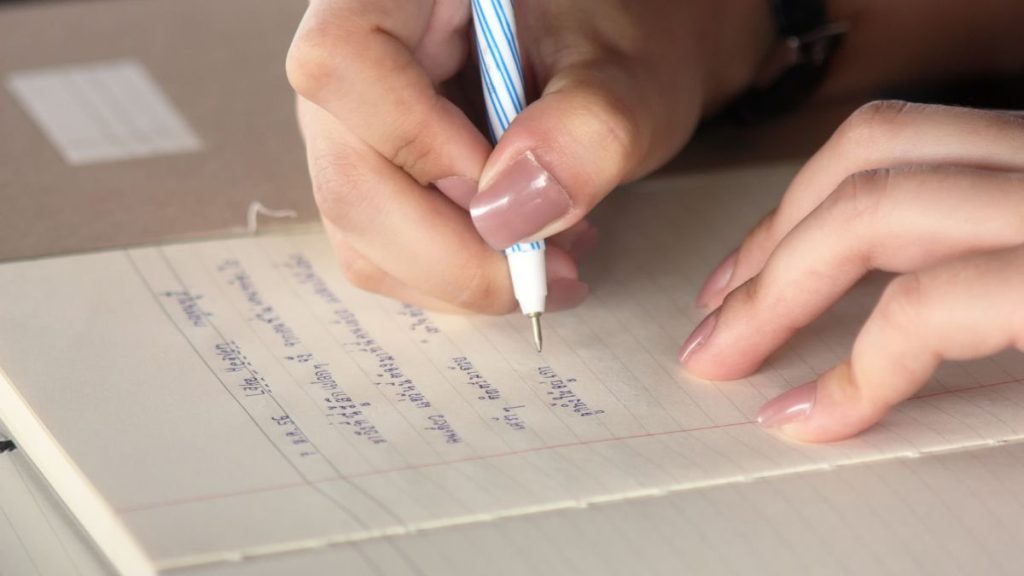Receiving a scholarship is exciting, but sometimes there’s one important task to do: writing a thank you letter to your donor. So if you need (or want) to write a thank you letter after receiving a scholarship, we have some tips to help.
Why write a thank you letter?
Writing a thank you letter isn’t just about being polite – it’s a chance to show your appreciation and practice professional communication. Sometimes it’s a part of your scholarship conditions; but even if it’s not, it’s a thoughtful gesture that might encourage the donor to support more students in the future.
The basic structure
Let’s go through some examples to help you write your scholarship thank you letter.
The greeting
Your greeting sets the tone for your entire letter, so it’s important to start off professionally. Start with “Dear [Donor’s Name]”. If you don’t know their name, “Dear Scholarship Donor” is perfectly acceptable.
Your introduction
The introduction is your chance to help the donor get to know you. Keep it brief but personal, including your name, study plans, and something interesting about yourself that relates to your chosen field.
Example: “My name is Sarah Chen, and I’m a Year 12 student at Riverside High School. I’m planning to study Biomedical Engineering next year, and I’m particularly passionate about developing medical devices that can help people with disabilities.”
Show your appreciation
This is the heart of your letter – where you express your gratitude. Make sure to name the specific scholarship and explain why receiving it means so much to you.
Example: “I am writing to express my sincere thanks for selecting me as a recipient of the Artistic Excellence Scholarship. This support means so much to me and will help make my dream of becoming a visual artist a reality.”
Tell them how it will help
Donors want to know their support makes a real difference. Explain specifically how the scholarship will impact your education, whether it’s covering textbooks, accommodation costs, or allowing you to focus more on your studies instead of working part-time.
Example: “This scholarship will cover my first-year accommodation costs, allowing me to live on campus. Being able to live at university means I can fully participate in study groups and access the library late at night, which will be especially important during exam periods. Without this support, I would have needed to spend over two hours commuting each day.”
Share your plans
This section helps donors understand the long-term impact of their support. Talk about your goals and how this scholarship is helping you work toward them.
Example: “After completing my degree, I plan to work in rural healthcare, specifically focusing on bringing medical services to remote communities. The experience and knowledge I’ll gain through this degree will be crucial in helping me achieve my goals and making a real difference to people in rural areas.”
Wrap it up
End your letter professionally with another thank you and a formal sign-off. This is your last chance to leave a good impression, so don’t waste it!
Example: “Thank you once again for your generous support. I am truly grateful for this opportunity and am committed to making the most of it. Sincerely, Jayden Thompson.”
Extra tips for success
Writing a thank you letter doesn’t have to be complicated, but there are some important things to keep in mind:
- Keep it to one page
- Check your spelling and grammar – then check it again
- Be genuine – donors can tell when you’re just copying a template (including this one!)
- Write it within a week of receiving the scholarship (or whatever time frame is specified)
- Keep a copy for yourself to refer back to
Common mistakes to avoid
Even the best writers can make mistakes, so watch out for these common pitfalls:
- Being too casual (e.g. “Hey there!” or using slang)
- Writing a generic letter that could apply to any scholarship
- Making it too long
- Forgetting to proofread
- Not following any specific instructions provided by your institution
Find out more
Remember, a well-written scholarship thank you letter isn’t just about being polite – it’s about showing donors that their support really matters and is going to someone who appreciates it. So take your time, be genuine, and let your personality shine through.
You can explore more future study options and pathways on our website. Or if you’re ready to apply, you might like to search our Scholarship Database for opportunities.


